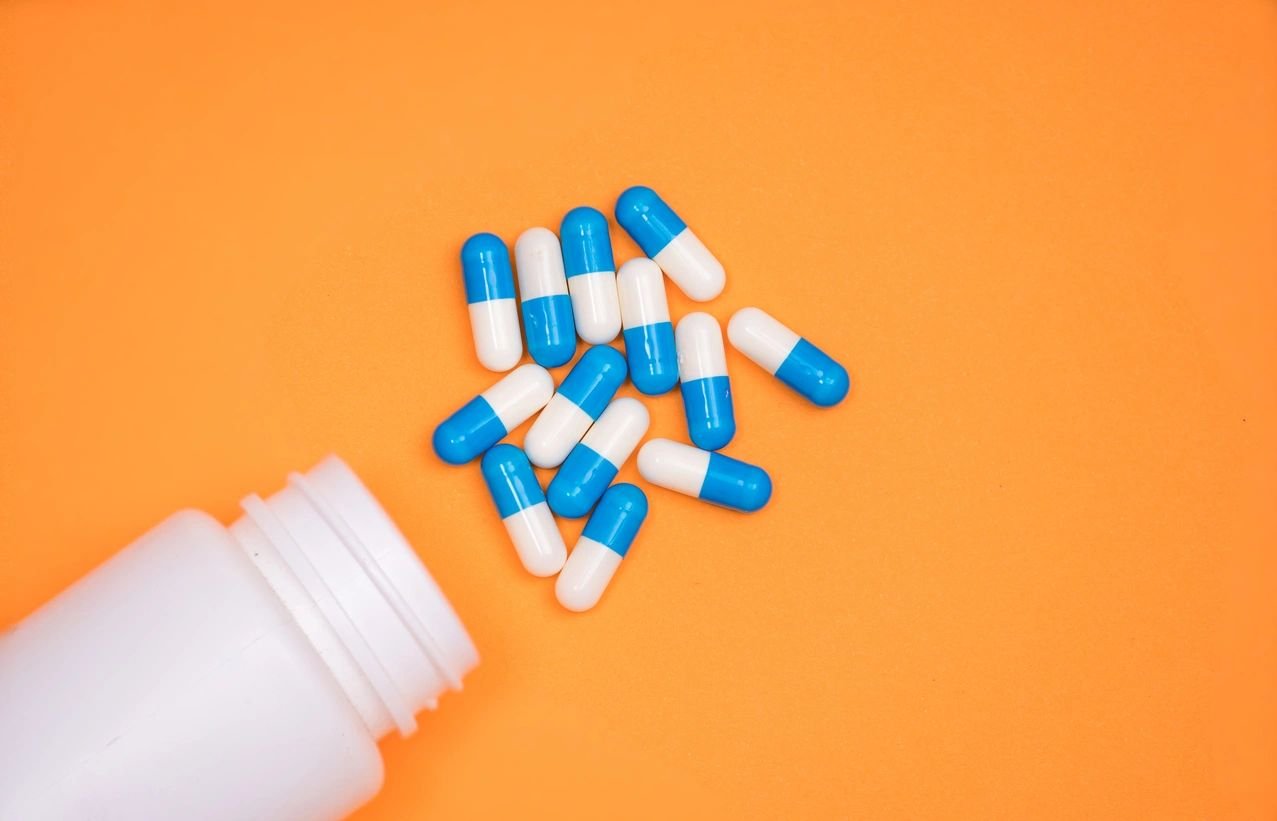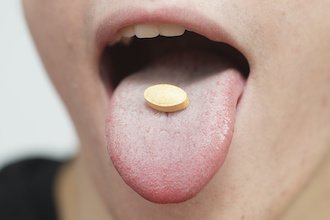My experience with ADHD medication

I received my ADHD diagnosis about two years ago. Since then, my journey in learning how to take care of myself has developed in many ways. I’ve learned about my hypersensitivity to sound. I’ve embraced my quick-fix imagination. And, I’ve learned how my body responds to various lifestyle changes.
One of the changes I’ve undergone for the past two years is experimenting with medications for ADHD.
Up until 2020, I was very much anti-medicine. I considered them a last resort option and certainly fell victim to the stigma about meds for the mind. Since opening my mind to medicine as an option, I’ve been able to experience the benefits of medication but also some of the drawbacks. The following is an overview of what my experience with ADHD medication has been like.
*Note: These are my personal experiences. Please do not make changes in your medication without consulting with your doctor and/or psychiatrist. Stimulants and other medications for ADHD can have life-threatening consequences when not taken under proper supervision.
Attempt #1: Adzenys
Adzenys is a newer medication for ADHD. It’s a dissolvable tablet that melts in your mouth and has an orange-like flavor. My provider prescribed it to me because she claimed it works like Adderall without giving you a crash.
Having never taken Adderall, I was thankful to be on a medication that doesn’t cause a crash, especially since I was weary of medicine all-together.
Also, I found the dissolvable method appealing. To me, it didn’t feel like I was taking anything “too hard,” because it would melt in my mouth at a moment’s notice.
I took Adzenys on-and-off for about 9 months until I realized some of the side effects it had caused me. Here’s a list of why it worked well for me and why I stopped.
Pros:
The medication works immediately. I could take it about 15-30 minutes before I needed to work and it always started to show benefits just in time.
The benefits last for about 8-10 hours (this number varies by user).
In addition to being able to sustain focus longer, I was able to think more logically (and chronologically) and I feel like my head was clearer/more controlled.
I was able to take Adzenys as needed. If I wanted to skip a day (or week), I would be just fine.
“On-and-off” benefits. If I want to feel more like myself and take my “serious hat” off, I could do just that. After all, it’s not natural for me to be neurotypical-like.
Cons:
Although I never experienced a proper crash with Adzenys, I sometimes experienced migraines after the medication wore off.
The medication increased my blood pressure and I am still struggling to get it under control today.
Cost: Thankfully, I was able to get my prescription at a discounted price with a voucher from my nurse practitioner. However, it can generally be pretty expensive without insurance and many people cannot afford it.
I experienced dry-mouth in the beginning of taking this medicine. Additionally, it’s a stimulant, so it may affect your appetite.
Despite the cons, Adzenys is still one of my favorite medications for ADHD because it is so reliable. When taking Adzenys, I felt confident knowing I would fidget less, pay attention more (especially on the road), and communicate better.
I have inattentive type ADHD, so this was a major game changer in helping me pay attention to what people are saying and not interrupt them. Applause all around!
2nd attempt: Adderall
I never took Adderall consistently but I have tried a little bit “here and there” when forgetting my Adzenys at home. One of my colleagues also has ADHD so we share a lot of the same struggles.
Adderall Pro: It’s widely accessible and tends to be affordable.
Cons:
It never really worked well for me despite taking the equivalent to my Adzenys dosage (and slightly higher).
It takes forever to kick in and experience the benefits.
Apparently, the crash from Adderall is hard (though I never experienced one).
Sidebar: An ADHD crash can make symptoms return severely, usually for a short period of time.
What can it look like? Temper tantrums, irritability, moodiness, crying, and/or fatigue to name a few.
3rd time’s a charm?: Vyvanse
My experience with Vyvanse was short-lived. I probably took it for 2-3 weeks when taking a break from Adzenys.
This was when my doctor realized Adzenys was causing blood pressure issues for me. They claimed many people are less likely to experience increased blood pressure while on the drug so we thought we’d give it a try.
Despite taking numerous dosages over several days, none of them worked for me. I started to ponder whether life on stimulants could work for me.
Pros:
If it works for you, it really works for you! I’ve heard countless people rave about how life-changing Vyvanse can be. I’m talking about saving them from losing their jobs, relationships, and keys :)
In general, many people report less side effects from Vyvanse (including increased heart rate/blood pressure)
Cons:
Vyvanse can be costly and inaccessible.
It never truly worked for me.
Since neither Vyvanse nor Adderall worked for me, I decided to take Adzenys again on an “as needed” basis.
My doctor was able to get me on a beta blocker that temporarily controlled my blood pressure issues.
My long term goal was to get off stimulant medications (like Adzenys) and of course, the blood pressure medication. The beginning of my non-stimulant experience started with Wellbutrin.
Lucky #4: Wellbutrin
Wellbutrin is an antidepressant medication that also helps people quit smoking and binge eating. Although it’s not approved by the FDA to treat ADHD, some prescribers (like mine) recommend it for off-label use.
I’ve been taking Wellbutrin for about 4 months so far and I think I like it.
In general, I experience some of the following benefits while taking this medication: I am less jittery/fidgety; I am able to sustain focus longer; my mind feels less cluttered and more quiet.
Wellbutrin is still not my favorite medication for a few reasons, but I think I’ll continue taking it until I’m ready to try something new again. In other words, it works for now.
Pros:
No “on-and-off.” You can get continued benefits day-in and day-out. There isn’t a small window of time in which you must get things done.
You are not at risk for side effects associated with stimulants, including increased heart rate and high blood pressure.
It’s more affordable that newer ADHD meds and it tends to be more accessible.
It enhances your mood since it is also an antidepressant (it’s a non-SSRI).
Cons:
There is no “on-and-off,” which may not work for you. If you want to take off your “serious hat,” good luck with that!
You have to take it every day as recommended by your doctor. If you forget, you may experience side effects.
It’s not as easy for me to tell if it’s actually working or not. I feel the benefits some days more than others.
Wellbutrin has to build up in your system for 6-8 weeks before you can experience the full benefits. For me, this meant I had to be strategic about when I transitioned to taking it. I planned around high-pressure moments to ensure I wouldn’t drop the ball on important tasks.
Reading others’ experience with ADHD meds has certainly made a difference for me. It has helped me rule out side effects and understand if the experiences I went through were ‘normal.’
I hope this post was just as helpful for you, especially if you are at the beginning of your ADHD journey.
There are several ways to seek treatment and manage your symptoms. Medication is just one of them.
Even though it can be a lot of trial-and-error, I believe it is worth it. I am grateful to have experienced life on the “neurotypical side” and having a taste at orderly thinking.
Our brains do amazing things and are capable of so much!
Take care of yourself and happy trails.
Sincerely,
Takira










